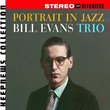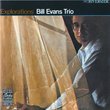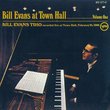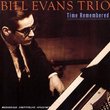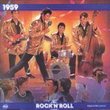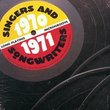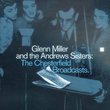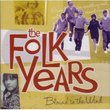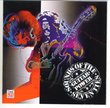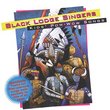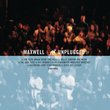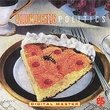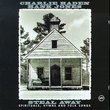| All Artists: Bill Evans Title: Trio 65 Members Wishing: 0 Total Copies: 0 Label: Polygram Records Original Release Date: 1/1/1965 Re-Release Date: 10/19/1993 Genres: Jazz, Pop Styles: Cool Jazz, Modern Postbebop, Bebop Number of Discs: 1 SwapaCD Credits: 1 UPC: 731451980824 |
Search - Bill Evans :: Trio 65
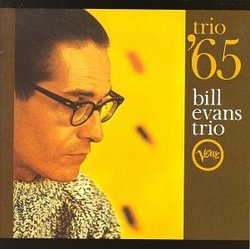 | Bill Evans Trio 65 Genres: Jazz, Pop
In the mid-1960s Bill Evans was involved in numerous recording projects, from film soundtrack work and playing with a symphony orchestra to duets with guitarist Jim Hall and solo and multitracked piano. As a result, he spe... more » |
Larger Image |
CD DetailsSynopsis
Amazon.com In the mid-1960s Bill Evans was involved in numerous recording projects, from film soundtrack work and playing with a symphony orchestra to duets with guitarist Jim Hall and solo and multitracked piano. As a result, he spent very little time in the studio with one of his finest working units, the trio with bassist Chuck Israels and drummer Larry Bunker. Each of Evans's trios found a different balance of elements, usually hinging on the pianist's musical relationship with his bass player. Israels is less given to virtuoso flights and aggressive countermelody than Scott LaFaro or Eddie Gomez, instead picking his notes for maximal harmonic and melodic effect, while maintaining a secure time feel. His style provides a different focus for the pianist, less reactive and more continuous, and it emphasizes Evans's capacity for rhythmically aggressive, boppish playing. John Carisi's "Israel," a tune dating from Miles Davis's Birth of the Cool, has Evans fastening on the rhythmic undercurrent generated by Israels and Bunker, and it continues with his linear approach to the solo on his own "Elsa." With familiar musicians and tunes, Evans produces one of his most relaxed and sustained recordings of the period. --Stuart Broomer Similar CDs
Similarly Requested CDs
|
CD ReviewsSwinging and melodic Kenneth James Michael MacLean | Ann Arbor, MI USA | 12/03/2000 (5 out of 5 stars) "Is there such a thing as a bad Bill Evans album?? I haven't heard one. This date in particular is beautiful -- swinging, melodic and just wonderful. Here, Bill Evans is in top form. His playing is always definitive, but it seems to me he is playing with particular verve and conviction on this date. Elsa is my favorite tune on this one and the beauty of the playing is indescribable. Listening to this man often brings a tear to my eye, or a wave of inspirational energy. This gentle being expresses the potential of the human soul like no other musician I have ever heard. If you are looking for a date which combines the best of swinging tunes and ballads, this is a great choice!" Hard work always do the job Jazzcat | Genoa, Italy Italy | 07/20/2006 (5 out of 5 stars) "This album from Bill Evans really is something that every jazz connossoir should own. It is magical! I did buy this one more or less 15 years ago when I first started to really appreciate true Jazz. I was a rock guitarist interested in fusion a little bit in those days. At that time I used to listen to Pat Metheny Group, Lee Ritenour (that was the farest I went in the Jazz territory).. absolutly good music don't get me wrong, but it's not pure Jazz. One LUCKY day I saw Sonny Stitt on tv, blowing a fast bebop blues and that vision completly blew me away. When I saw him I knew what kind of music I would like to play in my life. It was a revelation for me. Some guitar players say that seeing Jimi Hendrix on TV (even adding something like "when he burned his guitar in Miami or Monterey, he was so coooooool") took them to the decision to play the guitar. On the contrary seeing Sonny Stitt playing a bebop blues let me understand that I HAD to play bebop. I was already a guitarist (but Hendrix never said enough to me and I absolutly don't find coooool a thing such as "guitars burning"! =)))) ), but Sonny let me understand that was the language not the instrument. So I started to study Charlie Parker deeply for fifteen years. (Don't know why I'm telling you this story.. but)... Some months later my Sonny Stitt folgoration, I met this album. I found this album extremely difficult to understand at the time. I remember it was so hard for me to listen to it, it seemed to me a homework. Bill Evans work on the piano seemed to me extremely intellectual and hard to get ... but I didn't understand why it should be so difficult. It didn't entertain me because I didn't feel the fire Sonny Stitt had for example. This music is a lot more sophisticated under certain point of views (I still love to death Sonny of course). How things change my friends! Now after 15 years of hard jazz studies this album seems to me light as the wings of a butterfly and PURE GENIUS! Bill plays in a fantastic way with this trio. He plays a little more boppish than what he usually do. I think this album is a perfect gem, a perfect program of interesting and memorable tunes, played as only a master musician such as Bill could do. His musical personality is absolutly evident here and he plays here with a particular concentration and lucidity. This is really a GEM. Probably the best Bill Evans album I own, and I own many of his. And probably one of the best piano trio albums overall! In particular I love this album ALSO because I remember quite clearly how difficult this music seemed to me at first and perfectly testify to me that HARD WORK ALWAYS DO THE JOB. Thanxs for the lesson Bill!" The ultimate test of every Evans' fan Samuel Chell | Kenosha,, WI United States | 03/26/2007 (4 out of 5 stars) "Musically, I actually prefer this trio to its immediate successor, which brought to every musical discussion practically as much activity from the bassist as the pianist (if Gomez' bass solos are so vital, why aren't there transcriptions of them available from Hal Leonard and other publishers?). Still, the price the listener has to pay for a session such as "Trio '65" is exhorbitant: the Rudy Van Gelder piano, which has no relation whatsoever to a Steinway, Bosendorfer, Beckstein, Baldwin, Mason-Hamlin, Chickering, or even Wurlitzer--maybe an entry-level Casio or Yamaha digital at best. I was deluded enough to think that I might be spared the insult to the human ear, not to mention Bill, since this was a Verve, not a Blue Note, recording. Alas! Rudy's services were in such great demand--by Prestige, New Jazz, Impulse, Verve, and who knows how many other labels--that the first piano notes I heard on the disk were unmistakable Van Gelder, not Bill.
I thought jazz was about diversity, but here the melting pot prevails--Bill's touch sounds like Red Garland's, which sounds like Wynton Kelly's, which sounds like Kenny Drew's, which sounds like Sonny Clark's, which sound's like Herbie Hancock's, which... What would the fate of "Kind of Blue" have been had the engineering been done by Van Gelder? The primary reason I hold Evans in such high esteem is because of the Vanguard sessions (Riverside) and any of the recordings of his final year (Fantasy). This disk is painful after awhile--not because of Bill's playing but because you're constantly aware of how much better it could have been had the piano been allowed to sound like itself. Van Gelder was ideal for Horace Silver, Art Blakey, and practically all of the hard bop groups because he enhanced each horn player's sound (reverb), brought the drums front and center (again, with reverb), and put the bass player in your living room (assuming it's fully carpeted and and sound-proofed with absorbent walls and ceilings). But these gains came at the expense of the piano with its complex harmonics, frequencies and overtones along with any sort of spatial imaging or acoustic ambience. After "Trio '65," the chatting customers who can be heard in the background (yes, actual depth) on the original '61 Vanguard date are a welcome relief. Come to think of it there's an early Evans' date that's an alternative to both "Everybody Digs" and the "Vanguard Sessions"--especially for the listener who simply wants to hear straightahead, blowing, swinging piano as played by a master. It's "On Green Dolphin Street" on Riverside, with Paul Chambers and Philly Joe Jones basically just staying out of Bill's way while laying down a vibrant air-stream for each of his solos to travel on. The session's only "flaw" is that Bill did not play another tune or two on the date." |

 Track Listings (8) - Disc #1
Track Listings (8) - Disc #1